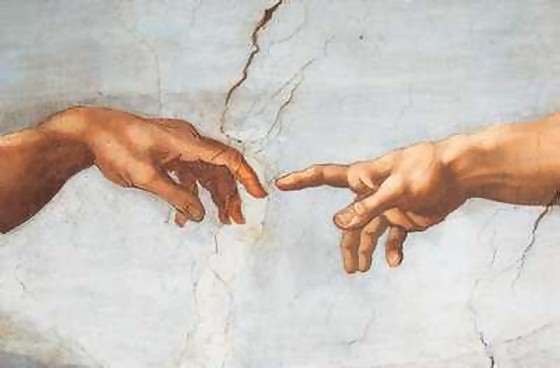Acts 2:1-4 & 1 Corinthians 12:1-13
“Where is God?” “If there is a God, why won’t God help me?” These are common feelings and vocabulary that we use in our grief, anxiety and existential frustration when we can’t control life or see the possibility of any good in life in the face of traumatic health, financial, relational and work related news. Pentecost speaks to this fear that is inherent to our human condition, and penchant for believing that we’re alone, or the way in which we often abandon and leave others alone when what they most need is a hand.
The Polish sociologist Zygmunt Bauman, writes significantly about the fear we face in postmodernity, or liquid modernity: the time in which we live. Faced with innumerable, and often times unimportant, decisions we are easily overwhelmed. It’s up to us to choose from among 100 breakfast cereals, and dress for success each day, but it’s also up to us – according to our society – to create our own identity, to navigate the massive amount of choices around our consumer spending, our government, our education and our life-style. We have to choose between environmentally green and destructive, from ethically treated to highly profitable, from self-focused to other-empowering. Our tool for making such decisions is increasingly the internet where everything can be found, but it’s up to us individually to find it. In the midst of massive community and connection, it’s all so easy to feel isolated, abandoned and spiritually paralyzed.
Theologian Kilian McDonnell writes of the Holy Spirit as the “other hand of God.” The Spirit of God isn’t just part of the Trinity, or how we understand God. Is God’s reaching out touch to the Church and the world. It’s the goal of the Christian life to live in communion with each other (and all creation) through the Spirit of God.
It’s this promise of God’s infinitely close presence, participating solidarity and transformational love that Paul writes of in 1 Corinthians 12 (and the whole book). It’s the experience of this life-changing encounter, life-sustaining relationship and mission-giving experience that Luke tries to explain to us in this story of the birth day of the Church.
Historically, Pentecost was the annual celebration of the harvest, giving thanks to God for the fruits of the earth, a Thanksgiving Day of sorts. But God doesn’t just provide, and definitely doesn’t do it discriminately, with a desire to reinforce social divisions, injustices and inequality. Paul writes to the church in Corinth to teach them that and to elucidate that everything is given to and for the church, not to elevate us individually giving us a hand up over others, but rather so that we miraculously re-present God, empowered by the other hand of God, being the hands of God for and with each other, for and within the world.
Questions for Going Deeper:
- What grabs your attention in these texts?
- As you listen to this text and reflect on your life, how does it challenge your way of seeing God?; yourself?; others?
- How are we/you invited to be the body of Christ today?
